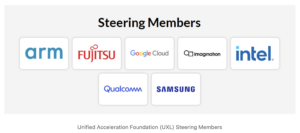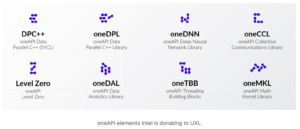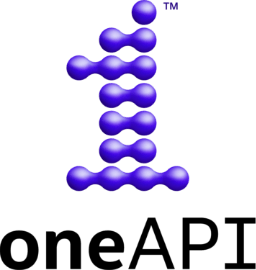Our kid’s graduating from college!
Four years ago, just before the start of COVID 19, we began this journey by sharing a vision of open accelerated computing when we announced the oneAPI project. We strongly believe that the future is brightest and benefits the most when open ecosystems power the world. In late 2020, we announced the first version of the spec and followed shortly after with a full implementation. It’s been an exhilarating journey, with a stream of feedback and dialog from our technical advisory boards, special interest groups and users leading to many new features and adoption by key developers. There are now 31 Centers of Excellence around the world developing with oneAPI and advancing its capabilities.
Back then, we wrote:
“growth in usage [of accelerators] often comes attached to a fully proprietary software stack that locks applications into a single vendor solution and requires significant effort to port to each additional system.”
Now, we’re happy to announce the next phase of evolution, marking the end of the beginning. Today, the Linux Foundation announced the Unified Acceleration Foundation (UXL Foundation) at the Open Source Summit Europe to create a programming ecosystem which is vendor neutral, built on open standards, with open source implementations to enable truly portable & easily reusable accelerated computing solutions. Several global leaders in computing including Arm, Fujitsu, Google Cloud, Imagination Technologies, Intel, Samsung and Qualcomm Technologies have joined together to take this mission forward. This is a significant milestone for developers, ranging from AI and HPC to important edge and embedded applications.

At Intel, we are proud of our contributions to UXL. We will contribute the oneAPI specification and all the open-source implementations for truly open governance. oneAPI embraced modern C++ programming for accelerators and worked with the Khronos Group’s SYCL language to create SYCL 2020, the basis of oneAPI. We built an open compilation infrastructure built on LLVM and SPIR-V. We also built key computation libraries. Through open specification and implementation, others were able to successfully port the common platform on their own hardware, as I wrote in “Newsflash: oneAPI 1.1 provisional spec available now!” and “Giving thanks for oneAPI progress”. These projects amply demonstrate the principles we espouse: openness to run anywhere, developer choice, and platforms that can be trusted.

The ability to unite the technology ecosystem around a vendor-neutral programming ecosystem for accelerators at this time of explosive AI Growth is incredible. UXL eases developer migration between hardware architectures and hardware vendors. Users should have the freedom to choose the best hardware to solve problems and not be locked-in by software.
I want to sincerely thank the entire worldwide team at Intel and the technical advisory boards and special interest groups from across industry and academia for bringing us here. This project is built on the foundation you have laid. We’re all excited to see how the Unified Acceleration Foundation will pilot us through the middle innings as we navigate our next phase of growth. The founding members are aligned with our vision and will build on what we started! With the growing ubiquity of accelerated computing, it’s an exciting time to be a software and hardware developer. Whatever you’re working on, the UXL Foundation will simplify your development journey and unlock the full potential of accelerators, no matter their architecture or vendor.

